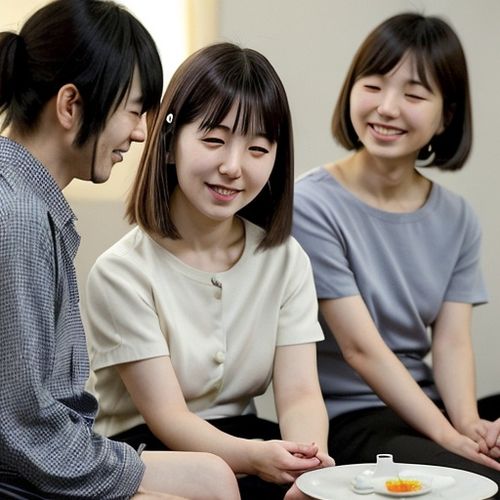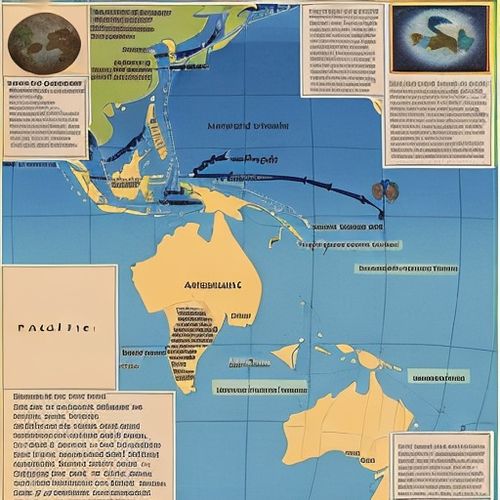In the intricate tapestry of human relationships, friendships stand as vibrant threads that weave through the fabric of our lives, providing support, joy, and a sense of belonging. Yet, navigating the complexities of friendships can be a challenging endeavor, especially when they encounter obstacles and disagreements. The instinct to let a friendship wither away rather than confront these issues head-on is a common one, particularly amidst the chaos and demands of life. However, in the face of a growing epidemic of loneliness, the importance of mending relationships is underscored by compelling biological evidence and the profound impact that friendships have on our well-being.
Lydia Denworth, in her enlightening book "Friendship: The Evolution, Biology, and Extraordinary Power of Life’s Fundamental Bond," emphasizes that friendship is not merely a choice but a vital necessity ingrained in our DNA. It is crucial for our success, mental health, and overall well-being. Throughout human history, our ancestors relied on social connections for survival, protection, and the sharing of resources. In today's world, while the nature of our needs may have evolved, the fundamental importance of friendships remains unchanged. They provide emotional support, a sounding board for our thoughts and ideas, and a source of joy and laughter that can brighten even the darkest of days.
If you've found yourself disconnected from dear friends or have grown apart recently, it might be an opportune moment to address any hurt feelings or misunderstandings. Consider this process as a form of relational and self-care, as unresolved conflicts can drain your energy and leave you feeling isolated. Embracing the awkwardness and vulnerability required to mend a friendship can lead to a deeper, more meaningful bond, ultimately enriching your life and contributing to your overall happiness.
To help you navigate the path of mending friendships or discerning when to move on, here are five strategies to consider:
Before diving into the process of mending a friendship, take the time to meditate and reflect on the positive aspects of the relationship. This practice can help shift your perspective and remind you of the value that the friendship brings to your life. Consider the shared experiences, inside jokes, and moments of support that you have enjoyed together. Documenting these positives in a journal or on your phone can serve as a tangible reminder of the bond you share and the reasons why it is worth investing time and effort to mend.
Meditation can also help you cultivate a sense of compassion and understanding towards your friend, allowing you to approach the situation with an open heart and mind. By focusing on the present moment and letting go of any negative emotions or judgments, you can create a space for empathy and genuine connection to flourish.
Sometimes, the way we communicate can be a barrier to resolving conflicts and mending friendships. If face-to-face conversations feel too daunting or overwhelming, consider exploring alternative communication methods that may feel more comfortable and effective for both you and your friend. Writing a heartfelt letter or sending a thoughtful email can provide an opportunity to express your feelings, thoughts, and concerns in a more structured and thoughtful manner.
In the age of technology, digital communication platforms such as text messages, video calls, or even social media messages can also serve as valuable tools for reconnecting and addressing issues. These methods can help bridge the gap between you and your friend, allowing for open and honest communication without the pressure of immediate responses or the potential for misinterpretation that can occur in face-to-face conversations.
Mending a friendship is not always a quick or easy process. It requires patience, understanding, and persistence from both parties involved. Be prepared for the possibility that it may take time for your friend to process their feelings, respond to your efforts, or make changes in their behavior. Remember that healing and rebuilding trust are gradual processes that cannot be rushed.
Continue to show your commitment to the friendship by reaching out regularly, even if the initial response is not what you hoped for. Small gestures of kindness, such as sending a funny meme, sharing an interesting article, or simply checking in to see how they are doing, can go a long way in demonstrating your care and willingness to work through the challenges together.
As time passes and life unfolds, people change, and so do friendships. It is essential to recognize and adapt to these changes in order to maintain and nurture a healthy relationship. Be open to the idea that your friendship may look different than it did in the past, and that new dynamics and shared interests may emerge as you both grow and evolve.
Embrace the changes and find ways to incorporate them into your friendship. For example, if one of you has developed a new hobby or passion, invite the other to join or share in the experience. This can create new opportunities for connection and growth, strengthening your bond and allowing your friendship to thrive in new ways.
While mending a friendship can be a rewarding and transformative experience, it is also important to assess the overall impact that the friendship has on your life and well-being. Reflect on whether the friendship is truly beneficial and supportive, or if it is causing more harm than good. Consider factors such as the emotional and mental toll of unresolved conflicts, the balance of give and take in the relationship, and the extent to which the friendship aligns with your values and goals.
If, after careful consideration and effort, you determine that the friendship is detrimental to your well-being, it may be necessary to make the difficult decision to move on. This can be a painful and challenging choice, but ultimately, it is an act of self-care and self-preservation. Surround yourself with other supportive and positive relationships, and focus on nurturing those connections that bring joy, growth, and fulfillment to your life.
When life becomes difficult, initiating difficult or painful conversations often gets pushed aside. However, human connection is essential, and it's time to embrace the awkwardness, be honest, listen, and engage deeply. Christine Koh, a former music and brain scientist turned author, podcaster, and creative director, shares her insights and work on her website and social media platforms, highlighting the importance of communication and connection in our lives.
In conclusion, friendships are a powerful and essential aspect of the human experience. They have the capacity to bring immense joy, support, and meaning to our lives, but they also require effort, understanding, and care to maintain and nurture. By embracing the process of mending friendships and approaching it with patience, persistence, and an open heart, we can strengthen our connections, foster personal growth, and contribute to a more connected and compassionate world. So, take that first step, reach out, and let the power of friendship guide you towards a brighter and more fulfilling future.

By Lily Simpson/Apr 19, 2025

By Christopher Harris/Apr 19, 2025

By Olivia Reed/Apr 19, 2025

By Laura Wilson/Apr 19, 2025

By Emma Thompson/Apr 19, 2025

By Olivia Reed/Apr 19, 2025

By Noah Bell/Apr 19, 2025

By James Moore/Apr 19, 2025

By Elizabeth Taylor/Apr 19, 2025

By John Smith/Apr 19, 2025

By Olivia Reed/Apr 19, 2025

By Lily Simpson/Apr 19, 2025

By Joshua Howard/Apr 19, 2025

By William Miller/Apr 19, 2025

By Eric Ward/Apr 19, 2025

By Lily Simpson/Apr 19, 2025

By James Moore/Dec 23, 2024

By David Anderson/Dec 23, 2024